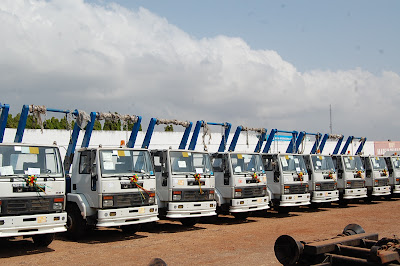BY EDMUND SMITH-ASANTE
Young African delegates gathering in Johannesburg, South Africa, have called on leaders of the World to deliver an outcome that would ensure climate, ecological, economical and gender justice at the 17th Climate Change Conference in Durban.
The youth from all sub regions in Africa who met Monday at a three-day landmark summit to discuss and consolidate their position on issues bothering on climate change, acknowledged that climate change impacts threaten Africa’s food security, health, lands, seeds, rights, natural resources and livelihoods.
Stating that it also presents imminent discrimination and violence against women and other vulnerable groups through forced migrations, loss of natural resources, and therefore the basis for their survival, the youth also called on their leaders to set the conditions that will be mutually beneficial for the creation of green and decent jobs, and allow them to take advantage of the broad spectrum of green jobs.
The youth specifically discussed how they could influence policies that ensure that consumers are more carbon conscious and embrace more sustainable lifestyles; opportunities for green job creation; how to make worthwhile energy efficient choices; and the power of social networking, to mobilising communities and awaken world leaders towards more effective sustainable development options.
In a statement at the end of their deliberation, the African Youth recognised that their unemployment predicament can be tackled by a green economy, which can generate more and better jobs that would contribute to an acceleration of sustainable development.
The statement, which builds on the Bandung Declaration adopted at the UNEP Tunza International Children and Youth Conference that was held from 27 September to 1 October 2011 in Indonesia, further recognised that education is the cornerstone of human existence, and that as capacity building at all levels is of key importance, the capacity of young people should be built accordingly, so that they can play their part in auditing and implementing policies that are related to sustainable development.
The Statement of the African Youth, which also builds on the Inaugural Generation Earth Youth Summit on Climate Change, which took place in Johannesburg in October 2011, lays out their commitment to lobby their governments to make climate change issues and Rio+20 Earth Summit a top priority.
The youth say they are also committed to adopt more sustainable lifestyles to reduce their ecological footprints, educate their communities and raise awareness about sustainable production and consumption and contribute to the global, regional and national discussions on sustainable development.
A press release jointly issued by Tunza, UNEP and Bayer and the Environmental Affairs Department of South Africa, announced that the Africa Youth Statement will be presented to the African Ministers of Environment at their consultative meeting, which will be held from 4-5 December 2011 in Durban, under the auspices of the African Ministerial Conference on the Environment (AMCEN), with the recommendation to ensure that the concerns of Africa’s youth are brought at the highest level of climate change debates.
According to the release, the principal challenge affecting the youth is unemployment and under-employment, despite the fact that their professional skills and qualifications are on the rise.
It adds that Africa’s youth remains the continent’s most important resource and have the potential to play a major and effective part in overcoming the many challenges that are slowing down Sustainable development in Africa.
However, it states that in order to tap into this potential, the youth must be informed and empowered so that they can participate in decision-making and implementation of those decisions and must also be empowered to protect, preserve and sustain the ecosystems whose services power life on earth.
“Even as they are empowered, young people must learn to spot and seize opportunities, particularly those that are to be found in the green economy”.
Commenting on the African Youth’s statement, Mounkaila Goumandakoye, Regional Director of UNEP in Africa, said: “There is still a long and challenging way to go if we want to live up to the values and principles of sustainable development and make them a reality. Taking one step beyond the deadlocks which we face in many areas, we will need to learn how to listen to each other, to integrate views and interests to come to practical solutions. We are delighted that African youth can clearly identify these challenges and propose strategic and collaborative action that address their individual, local, national and continental plight and help Africa walk purposely through the sustainable development path. ”
Meanwhile, the Intergovernmental Panel on Climate Change (IPCC), says the consequences of global warming are likely to be more severe in Africa, even though the World Meteorological Organisation recently reaffirmed that African countries are already suffering major levels of warming and effects in terms of drought and other extreme weather events.









